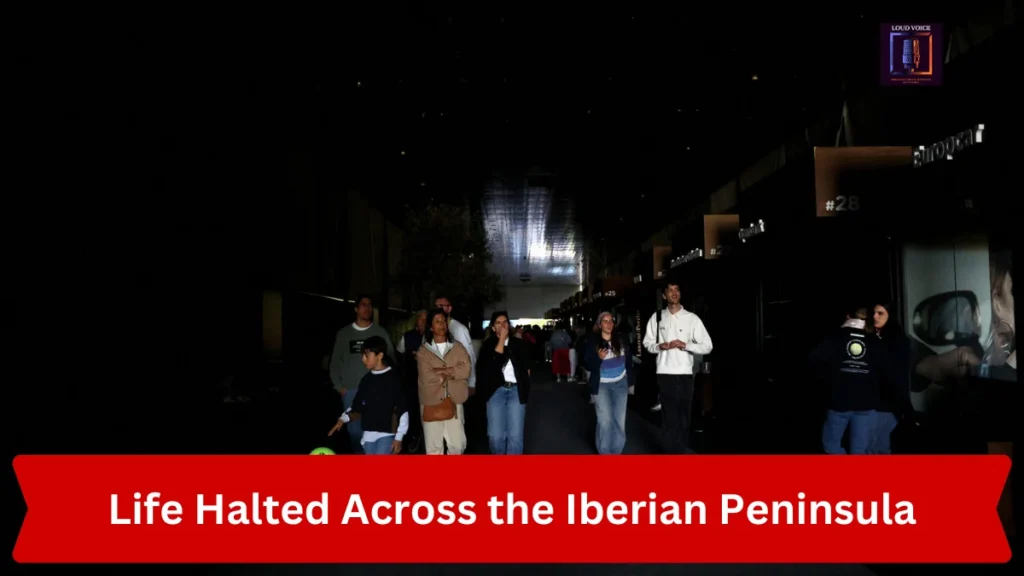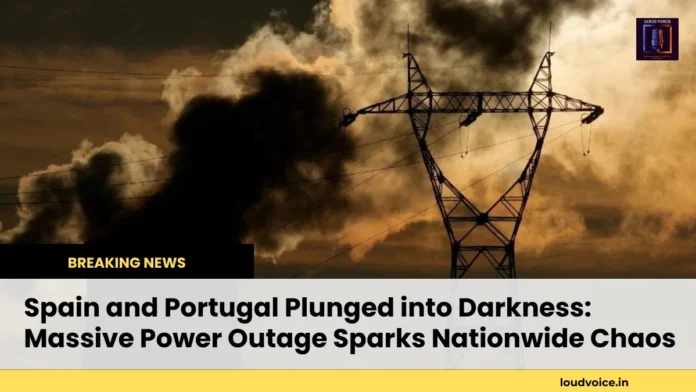Key Takeaways
- A massive power outage affected Spain and Portugal, disrupting daily life, transportation, and essential services.
- In Portugal, traffic lights failed, and airports experienced severe delays, with travelers stranded in the dark.
- Spanish and Portuguese authorities are working to restore power and investigate the cause of the blackout.
Spain and Portugal Plunged into Darkness: A National Crisis
In a shocking turn of events, a massive power outage swept through Spain and Portugal on a Monday morning, plunging both countries into widespread chaos. The outage, which affected the Iberian Peninsula and parts of France, crippled essential infrastructure, from traffic signals to public services, leading to massive disruption across the region.
This unexpected crisis created immediate problems for transportation networks, including airports, train stations, and road traffic, leaving both citizens and tourists scrambling to adjust to a rapidly changing situation. With efforts underway to restore power, the full impact of the outage is still being assessed as authorities work to resolve the issue.
Chaos on the Roads: Traffic Lights Fail in Spain and Portugal
One of the most immediate effects of the power outage was the failure of traffic lights, which turned busy city streets into a chaotic free-for-all. In both Spain and Portugal, the lack of traffic control led to massive traffic jams and increased risk of accidents.
Spanish authorities, in coordination with Portuguese police, issued urgent warnings to the public to avoid unnecessary travel and drive with caution. In Lisbon, police advised drivers to reduce their speed and maintain extra vigilance as the city’s streets became gridlocked. “Pay extra attention,” Portugal’s police force urged, “your calmness saves lives.”
A local motorist in Madrid described the pandemonium, saying, “It was like driving through a jungle, with no traffic lights and drivers behaving unpredictably. I had to speed up to avoid being hit by a bus.” The situation was even more dire in smaller towns where there was little infrastructure to manage the chaos caused by the blackout.
Airport Disruptions: Travelers Stranded in the Dark
Airports in both countries were not spared from the effects of the blackout. Lisbon’s Humberto Delgado Airport, one of Portugal’s busiest, became a scene of confusion as thousands of passengers waited in long queues with no power.
With air conditioning down and essential services such as running water and toilets unavailable, travelers were left frustrated and uncomfortable. The airport also announced that shops were only accepting cash payments due to the power outage, making it difficult for many passengers to purchase essentials.
In Madrid, flight departures were also delayed as the airport faced significant disruptions in its electrical systems. The failure of essential airport infrastructure led to cancellations and long waits, exacerbating an already stressful situation for international and domestic travelers alike.
Train Services Halted Across the Iberian Peninsula

The power failure damaged rail networks throughout the Iberian Peninsula, causing both Spanish and Portuguese train services to come to a complete stop. Spain’s Renfe and Portugal’s E-Redes both confirmed that the outages caused severe disruptions, with trains unable to operate due to a lack of electricity.
Because of this, travelers were unable to go to their destinations and were left stuck at train stations. For many, the uncertainty of when services would resume added to the anxiety of an already difficult situation.
“E-Redes has confirmed that power is being restored in various parts of the country,” the Portuguese electricity provider said in a public statement. However, the widespread nature of the outage meant that full restoration would take some time.
Investigating the Cause of the Widespread Blackout
As efforts continued to restore power, Spanish and Portuguese authorities worked tirelessly to determine the cause of the outage. Grid operators in both countries indicated that the electrical failure originated from an issue affecting the entire Iberian Peninsula, including parts of France.
“It is a much larger issue affecting the European power grid,” stated E-Redes, underscoring the complexity of the problem. While the exact cause is still under investigation, the scale of the disruption has raised questions about the stability and resilience of Europe’s interconnected energy systems.
Spain and Portugal’s Reaction to the Ongoing Recovery
Power was gradually being restored, but the crisis response is still ongoing. In Spain, the grid operator Red Electrica worked alongside energy companies to expedite the recovery process. Authorities urged citizens to remain patient as efforts continued to bring the country back to normal.
In Portugal, the power restoration efforts were also in full swing, but the situation remained tense. The government and emergency services focused on re-establishing electricity and ensuring that essential services, including healthcare and public safety, were prioritized.
As the investigation into the cause of the blackout continues, experts are calling for a reevaluation of energy security across the region. The widespread nature of the outage has highlighted the vulnerabilities of Europe’s power infrastructure, particularly in times of large-scale disruptions.
The Need for Stronger Energy Infrastructure
The blackout in Spain and Portugal serves as a stark reminder of the vulnerabilities inherent in interconnected power grids. Both nations will likely need to focus on enhancing the resilience of their energy networks to prevent similar failures in the future.
The incident also calls for a broader discussion about energy independence and the need for backup systems to prevent cascading failures in essential services. As Spain and Portugal work to recover, there is a shared commitment to improving their power infrastructures to withstand future challenges.
Conclusion
The power outage that crippled Spain and Portugal was a rare and disruptive event that affected millions of people across both countries. From traffic gridlocks to airport chaos, the blackout revealed serious flaws in the infrastructure that both nations depend on. As efforts to restore power continue, the experience will likely lead to a reassessment of energy security and a renewed focus on ensuring that such an event does not occur again in the future.


